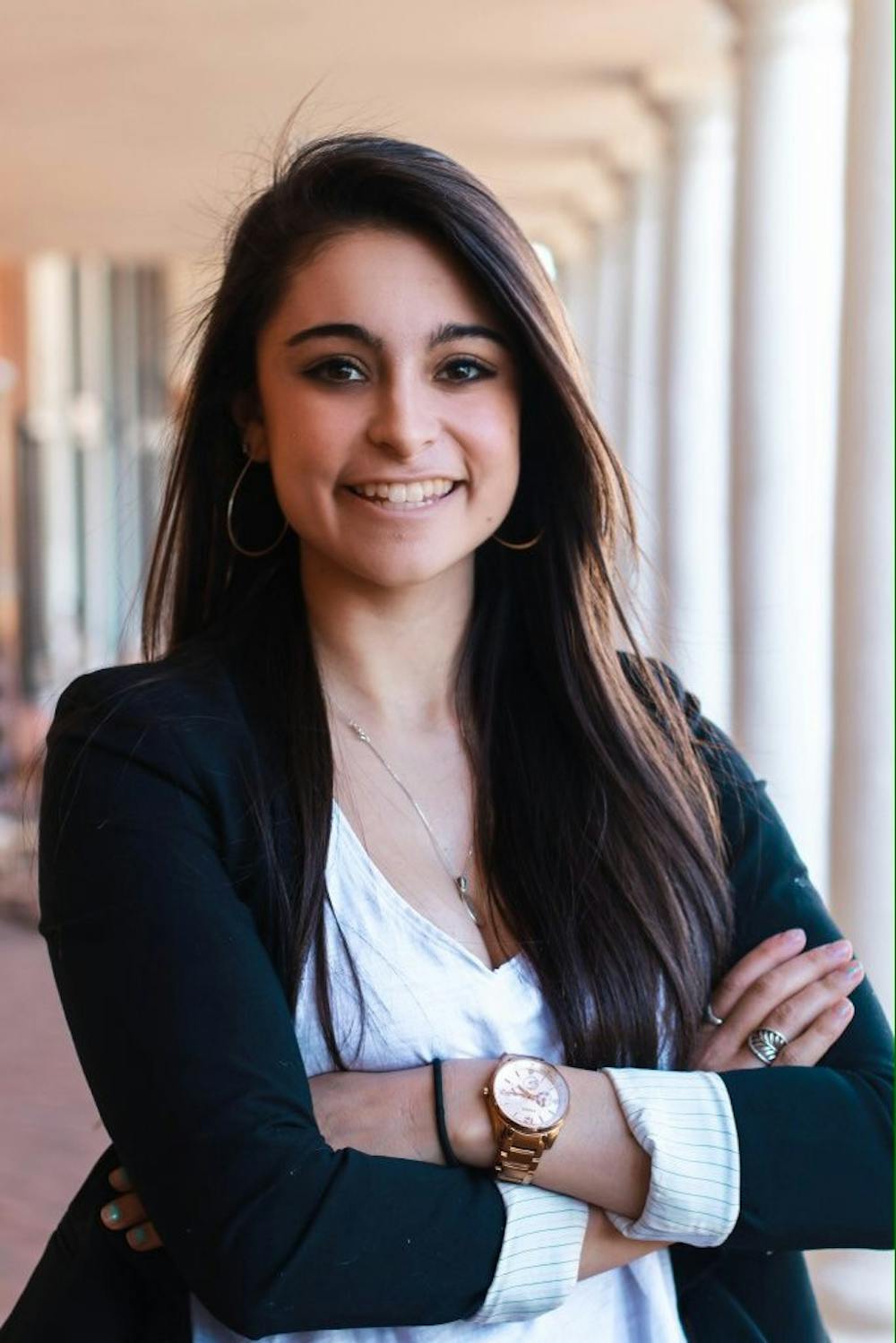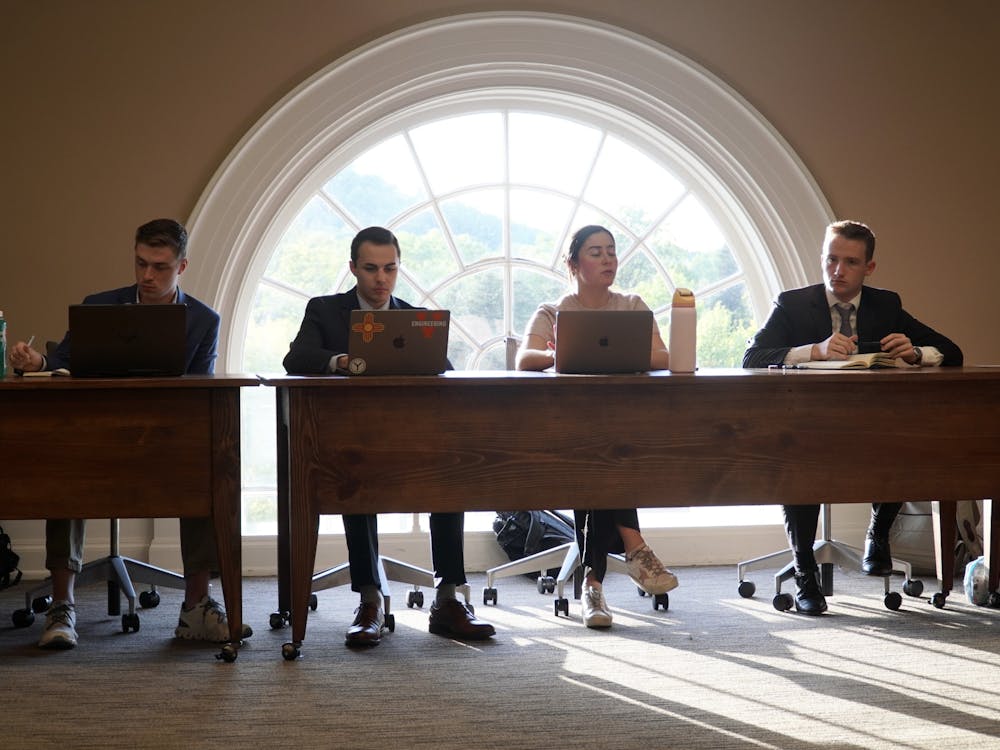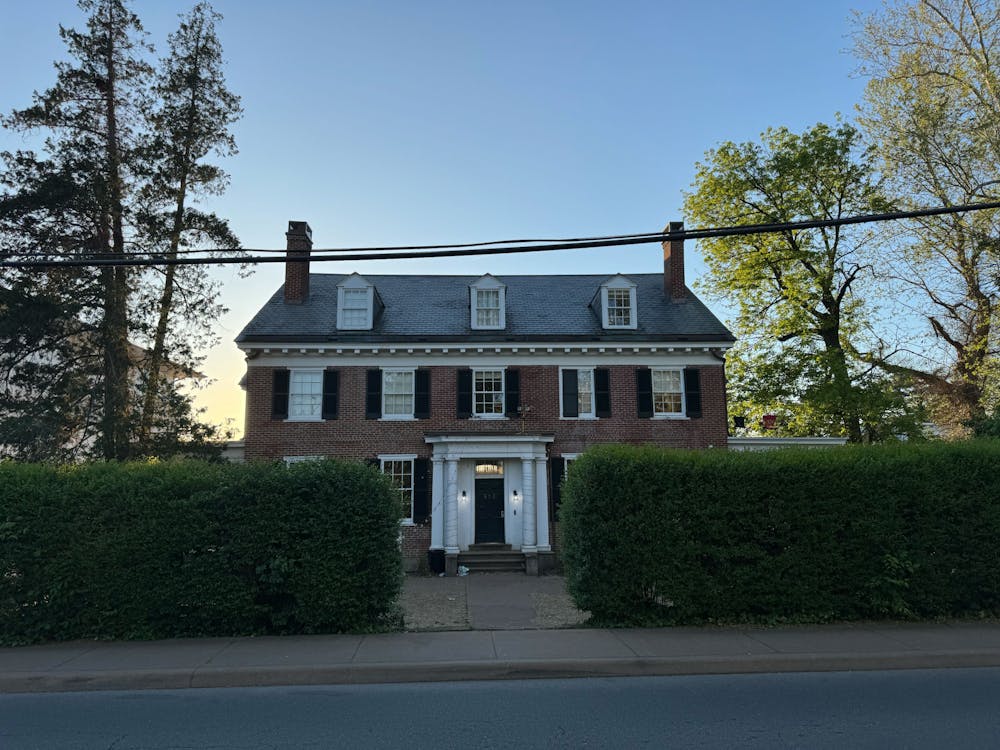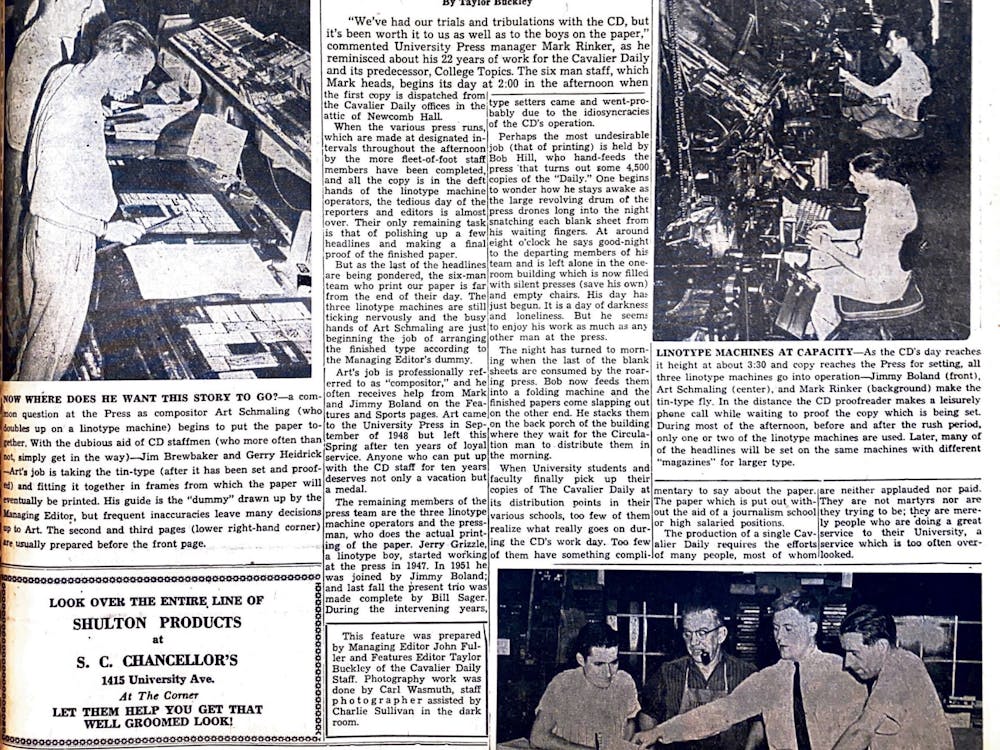Elections for the University Judiciary Committee were held through Zoom April 25. These elections determined the voting members on the Executive Committee — Chair, Vice Chair for Trials, Vice Chair for First Years, Vice Chair for Sanctions and Vice Chair for Graduate Students.
Third-year Batten student Gabby Cox was elected as the new Chair for the 2020-2021 school year after about an hour-long election. The other elected members of the Executive Committee were second-year College student Slade Sinak as Vice Chair for Trials, second-year College student Lauren Kim as Vice Chair for Sanctions and second-year Engineering student Gustavo Moreira as Vice Chair for First Years. The position of Vice Chair for Graduate Students is vacant for the time being, until UJC finds a graduate student willing to fill it.
Cox will be succeeding fourth-year College student Shannon Cason. The other positions for Executive Committee were previously held by Cox as Vice Chair for First Years, third-year College student Chirag Kulkarni as Vice Chair for Trials, third year Commerce student Mahathi Kambham as Vice Chair for Sanctions and McIntire PhD candidate Kyle Chattleton as Vice Chair for Graduate Students.
Cox presented several plans for UJC’s increasing caseload and the potential situation of classes being online in the fall semester in her campaign speech. She hopes to be able to create an accessible and secure platform for trials to be held after discussion with other University systems, such as the Women’s Center and the Vice President and Chief Student Affairs Officer, who have already begun to transition to online resources.
Confidentiality is important to the UJC trial system. Concerns have been raised regarding the security of the Zoom platform. “Zoom bombings” — when a Zoom meeting is interrupted by an uninvited attendee — have occured during classes and are a threat to the security of UJC trials. All trials have been suspended until fall semester to maintain security and complete in-person facilitation of the processings.
Furthermore, Cox plans to stay in close contact with Ryan Keane, incoming Honor Chair and third-year Batten student, to achieve consistency within the two student self-governance systems. Honor has already begun to do investigations online, so Cox believes their input would be beneficial.
“It’s mainly just, as soon as possible, getting the ball rolling on how to conduct these trials online, and then as we start figuring out a platform, retraining each pool on what the new trial procedures would look like over the internet,” Cox said during the election process.
Cox also noted her plans for UJC as the new Chair, whether or not the University community is operating back on Grounds in the fall. Her four goals, as told to The Cavalier Daily, consist of improving internal relations through restructuring within UJC positions, improving external relations through training and recruitment, strengthening UJC’s role at the University and continuing the legacies of past Executive Committees and Chairs.
“My intention for the future of UJC rests in … [emphasizing] UJC’s Role in the broader context of self-governance to increase communication and improve relationships within, and outside, the UJC community,” Cox wrote in an email to The Cavalier Daily.
Each candidate gave a five minute speech on the Zoom call. Then, two people for each candidate for the contested Chair and Vice Chair of Trials positions joined the call to speak on the candidates’ experiences with UJC. After deliberation amongst the current voting members, voting was completed through Google documents.
Cason thought elections went smoothly despite occurring virtually through Zoom.
“It was more challenging to have open dialogue about candidates because usually people have been trained and have met each other by election day, which increases comfort in speaking up and knowing the various candidates,” Cason wrote in an email to The Cavalier Daily. “However, it still worked well.”
Cox also expressed that she found the online election process to be successful for UJC.
“Elections in my opinion ran smoothly and there appeared to be no technological issues,” Cox said. “Thanks to our previous chair Shannon Cason, elections were able to be conducted as they would have if in person.”
In addition to elections, UJC has operated successfully since its March 31 email updating students on changes to case processing, representative elections and support for the community impacted by COVID-19.
Case processing was temporarily suspended until the fall semester to avoid social contact, and cases that could wait until then were postponed. All students that required immediate case processing were to be contacted to decide what actions could be taken.
Although normal University operations have been suspended and most students are far from Grounds, UJC is still receiving and accepting complaints. Cason said there have been no cases that have required immediate action. Accused students and groups have been notified to inform them that their trial will occur early next semester.
“Until we return to school, unless a case requires immediate action we will hold off on with the intention of hearing cases earlier than normal in the fall to ensure expedient case processing,” Cason said.
Since March 31, UJC has been seeking representatives from several schools within the University. All of these positions except one spot in the Curry School have been filled, according to Cason. The Committee is also working with the new School of Data Science to provide them with a representative position.
Another part of UJC majorly impacted by structural changes has been training for these new representatives. Mock trials are an important part of training for the Committee, and a Zoom call cannot accurately mirror a real trial. Other important components, such as implicit bias training, are also much easier to practice in person. If representatives were to be trained in these areas now, they would not be using the training until five to six months later when they could finally hear a case.
“Additionally, it is a time for reps to get to know each other which I think is more difficult over Zoom,” Cason said. “It is easy to forget training you do not use after a while.”
Thus, training for UJC will be held in the fall to avoid counterintuitive measures.
Expectations for members of UJC will be adjusted if classes are online next semester. Cason said that while she hopes there will not have to be another election held through Zoom, they now know what does and does not work for future meetings.
“I find it more difficult to hold people accountable over an online system with, for example, not coming to a meeting,” Cason said.





